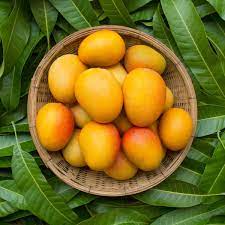National Mango Day 2023: Date, Significance and History

National Mango Day 2023: Date, Significance and History: Gulshan Kumar Jha’s calm innings of 67 runs from 84 deliveries helped Nepal win the championship match against UAE by seven wickets. It can be relished in various ways, for example in ice creams, mousse, smoothies, and much more.
Daily Current Affairs Quiz: July 2023
Significance of International Mango Festival
Beyond its mouthwatering taste, the mango holds cultural significance for India that goes back centuries. In Indian mythology and literature, the mango is often associated with love and prosperity. It plays an important role in Indian festivals and rituals, symbolising abundance and good fortune. With such rich cultural connections, it’s no wonder that the International Mango Festival has become a joyous celebration of this beloved fruit.
History of International Mango Festival
The roots of the International Mango Festival can be traced back to 1987 when the National Horticulture Board of India had a bright idea—to celebrate mango. Since then, it has become an annual tradition, eagerly awaited by mango lovers across the nation. Bustling mango markets, vibrant mango exhibitions, and an abundance of fruity delights await visitors during this mango-filled extravaganza.
The history of mangos goes back a long time. This fruit, which was first cultivated roughly 5,000 years ago, is associated with Indian folklore. It is reported that Lord Buddha was granted a mango orchard so that he might rest under the shady tree. The fruit is called “mango” in English and Spanish-speaking nations and the name was derived from the Malayan word “manna,” which the Portuguese changed to “manga” when they arrived in Kerala in 1490s for the spice trade.
From its origin country, the mango seeds traveled with humans from Asia to the Middle East, East Africa and South America starting from 300-400 AD and then later to other parts of the world.
Mangoes were first grown in India over 5,000 years ago In India, Mango is a symbol of love and is also considered a gesture of friendship. The mango leaves, as well as bark, skin, pit and flesh, have been used as folk remedies for centuries. Mangoes have a relation with cashews and pistachios. They all belong to the Anacardiaceae family.